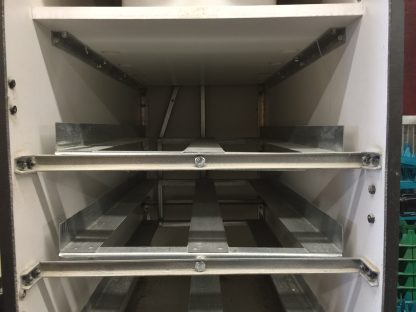
CAPD may lead to or be associated with difficulties in higher order language, learning, and communication functions.Although sometimes difficult, careful differential diagnosis is important to the process of treatment planning. Terms include, but are not limited to, "auditory processing disorder," "(central) auditory processing disorder," "language processing disorder," and "auditory information processing disorder."ĪSHA uses the term Central Auditory Processing Disorder (CAPD) to refer to deficits in the neural processing of auditory information in the CANS not due to higher order language or cognition, as demonstrated by poor performance in one or more of the skills listed above (ASHA, 2005).
#Gqf sportsman incubator replacement parts professional#
Terms used to describe a processing disorder may vary based on the perspective of the professional describing the problem. Auditory performance with competing or degraded acoustic signals (including dichotic listening ASHA, 2005)Ĭentral Auditory Processing Disorder (CAPD).temporal resolution (e.g., temporal gap detection).Temporal aspects of audition, including.

These mechanisms underlie the following skills: Medwetsky (2011) provides in-depth information on this topic.ĬAP consists of mechanisms that preserve, refine, analyze, modify, organize, and interpret information from the auditory periphery. Knowledge of the neuroanatomy and physiology of the central auditory nervous system is essential for understanding and interpreting underlying processes and deficits.


Central Auditory Processing (CAP)Ĭentral auditory processing (CAP)-also seen in the literature as (central) auditory processing or auditory processing-is the perceptual processing of auditory information in the central auditory nervous system (CANS) and the neurobiological activity that underlies that processing and gives rise to electrophysiologic auditory potentials (American Speech-Language-Hearing Association, 2005). See the Central Auditory Processing Disorder Evidence Map for pertinent scientific evidence, expert opinion, and client/caregiver perspective. Content is relevant to both developmental and acquired CAPD. TURNER SOLD SEPERATELY.The scope of this page is central auditory processing disorder (CAPD) in children and adults. Thermostat can be set to any temperature required for bird eggs and can also be set for all reptile eggs down to 60℉. Includes picture window & plastic bottom liner. Like all incubators, the GENESIS requires a stable room temperature and should not be used in areas like sheds or barns.Įxcellent for classrooms, novices, and experts. Built in sensors prevent the “burn up” of eggs. The digital technology in this thermostat means the command setting is never affected by changed in humidity, temperature or dust. The pre-set microprocessor based thermostat digitally regulates itself. The LCD will display set temp, actual temp and humidity percentage in both Fahrenheit and Celsius. While the thermostat set temperature can easily be fine-tuned, most users won’t find it necessary. Simply plug it in, then add water for humidity and eggs. This certification along with the safety afforded by its 12 Volt system makes it perfect for use in classroom and laboratory settings.


 0 kommentar(er)
0 kommentar(er)
